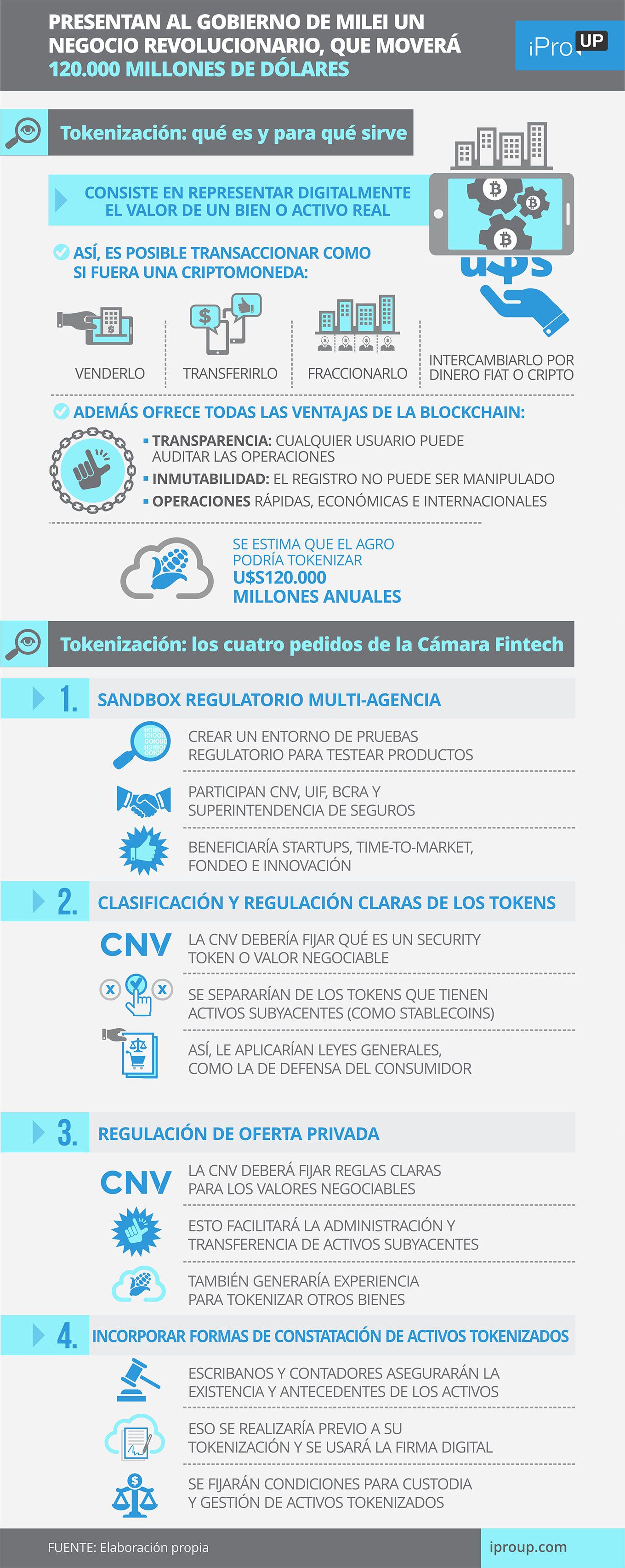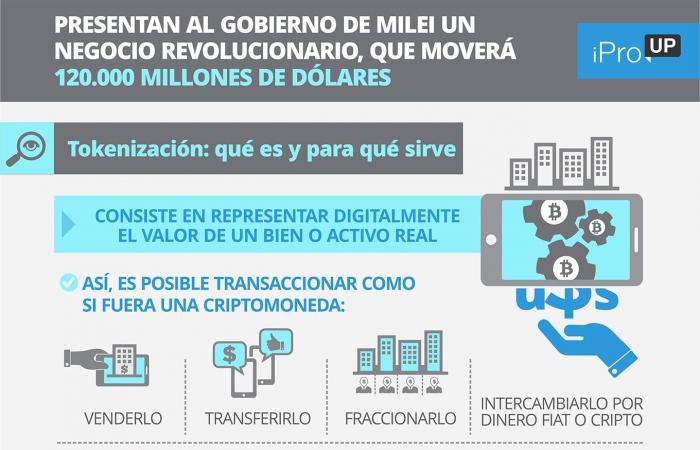He real estate is undergoing a significant revolution thanks to the asset tokenization. This method consists of converting the property rights to real estate in digital tokenswhich can be bought and sold on platforms based on blockchain.
This transformation is democratizing access to investment Propertyallowing more people to participate in this market, either to access their own home or as savings or investments. The tokenization offers multiple benefits:
- Facilitates the property value fragmentationfor investors to acquire fractions of a property, which significantly reduces the economic barrier
- Increase liquidity, as tokens can be traded on secondary markets more easily than traditional real estate
- Increases transparency and security of transactions, thanks to the use of smart contracts and the immutability of the blockchain
Thus, users can Invest in shares of a property at your own pacewithout being tied to quotas, and with the assurance that your capital will grow in dollars and leave them closer to their own home. A sort of tailored “savings plan”.
Real estate tokenization: its advantages
Marcelo Schamy, investment advisor in the United States and CEO of Orbis Consulting, comments to iProUP that tokenization modifies the way of acquiring real estate in several ways, starting with the advantage of divide an entire property into percentage parts transformed into tokens digital.
“You can participate in investment Property anywhere in the world. Liquidity is also an important point, since today tokens can be traded in secondary markets specialized in this area.
At the same time, “we can consider it a transparent transactionsecure and immutable thanks to blockchain technology.” This reduce costs and improve efficiency by eliminating intermediaries and costly writing processes.
Tokenization allows the value of a property to be divided into fractions and converted into a token
The rise of this trend is reflected in the growing adoption by companies and platforms dedicated to the sale of tokenized real estate. Companies around the world are using this technology to attract a broader and more diversified investor base, and it is expected that this trend will continue to rise, transforming the real-estate market.
Fernando Ors, president of Reental, tells iProUP that, in a context where savings lose purchasing power and access to credit is limited due to high inflation and economic instability, “the Tokenized real estate investment emerges as an innovative solution and disruptive.”
Details that the tokenization of real estate in Argentina is gaining notable growth thanks to the adoption of technologies blockchain and cryptocurrenciesproviding new investment opportunities and improving market efficiency and transparency.
Real estate tokenization: how it works
“Currently, we have 63 projects underway and more than 16 thousand users distributed in 80 countries on three continents,” details ors.
In this way, Argentina represents the second largest market in investor terms. Tokenization allows investing in shares (tokens) of 100 euros or $100.
This way, facilitates investment for people who do not have the necessary capital to purchase a property either those looking to diversify their capital between several projects without requiring the time and resources of comprehensive property management such as: purchase, renovation, rental and subsequent sale.
Another company that works with tokenization is MiActivo. “We are a tokenizer based in Neuquén; our vision is to democratize investments in real estate in a way easy, traceable and secure“, he states to iProUP Sandra Bigolin, CFO of the firm.
Tokenization allows you to buy “small parts” of a property for savings or investment
“Our first tokenized project is a open residential neighborhood in the city of Centenario and we are close to closing others in CABA“, account.
Another firm that implemented this system is Simplestate. “Our platform allows Anyone, from the novice to the experienced saver, easily access investment opportunities in real estate,” he assures iProUP Gonzalo Abalsamo, co-founder and CEO of Simplestate.
The executive that can be invested from 20,000 pesos and in one click you can access more than 100 properties that generate performance; something unthinkable until a few years ago. “While in many tokenization platforms, investors need a wallet web3 to participate, at Simplestate we simplify this process,” they say.
In addition, it ensures that it is the same as leaving money in a bank account. Payment Market: “Our users can easily acquire a fraction of the property and start earning returns without complications”.
Tokenization: the Fintech Chamber project
To promote this technology and its associated benefits, the Argentine Fintech Chamber prepared a document with proposals for legislative reform that promotes the debate on how to help the massification of this technology in the country.
“We combine law, corporate finance and technology to accompany companies and governments in asset tokenization projects and legal processes,” he tells iProUP Sebastián Heredia Querro, co-founder and co-CEO of Wootic.

Details that they operate in multiple sectors such as agribusiness, mining, sports, music, video games, voluntary carbon markets, real estate and industrial hemp or medicinal cannabis, among others.
“We are convinced of the enormous national potential in this matter, and we believe that the position paper of the Argentine Fintech Chamber marks a clear roadmap that will allow us to align incentives and unlock hidden value in our economy and natural resources, critical for the coming energy transition,” he mentions.
From the Argentine Fintech Chamber they propose a sandbox multi-agency regulatory, that is to say, a limited legal environment but in which companies can carry out product tests. You are endorsed by the National Securities Commission (CNV), the Financial Information Unit (UIF), the National Insurance Superintendency (SSN) and the Central Bank of the Argentine Republic (BCRA).
“This would reduce bureaucracy for emerging projectswould shorten the time-to-market, It would facilitate the funding of startups and encourage innovation,” they comment from the Chamber.
Also, they propose a clear classification and regulation of crypto tokens. “The CNV should define what is a security tokenthat is, a tradable value registered in a private, hybrid or public blockchain and separate it from cryptographic tokens that are representations of real assets, goods and services for commercial omnichannel purposes,” they explain.
Furthermore, they highlight the need for a Regulation of private supply. “The CNV should establish clear regulations for the private offering of negotiable securities, to make it more accessible and for higher amounts to more participants.”
This measure facilitates the management and transfer of underlying assets and would generate experience for tokenizing other types of securities, including tradable securities.
Finally, they propose the incorporation of forms of verification of assets. “Notaries and accountants could ensure the real existence and background prior to tokenization,” they suggest.
And it is suggested to use the powers of the enforcement authority of the digital signature to establish standards and conditions for the custody and management of tokenized assets.







